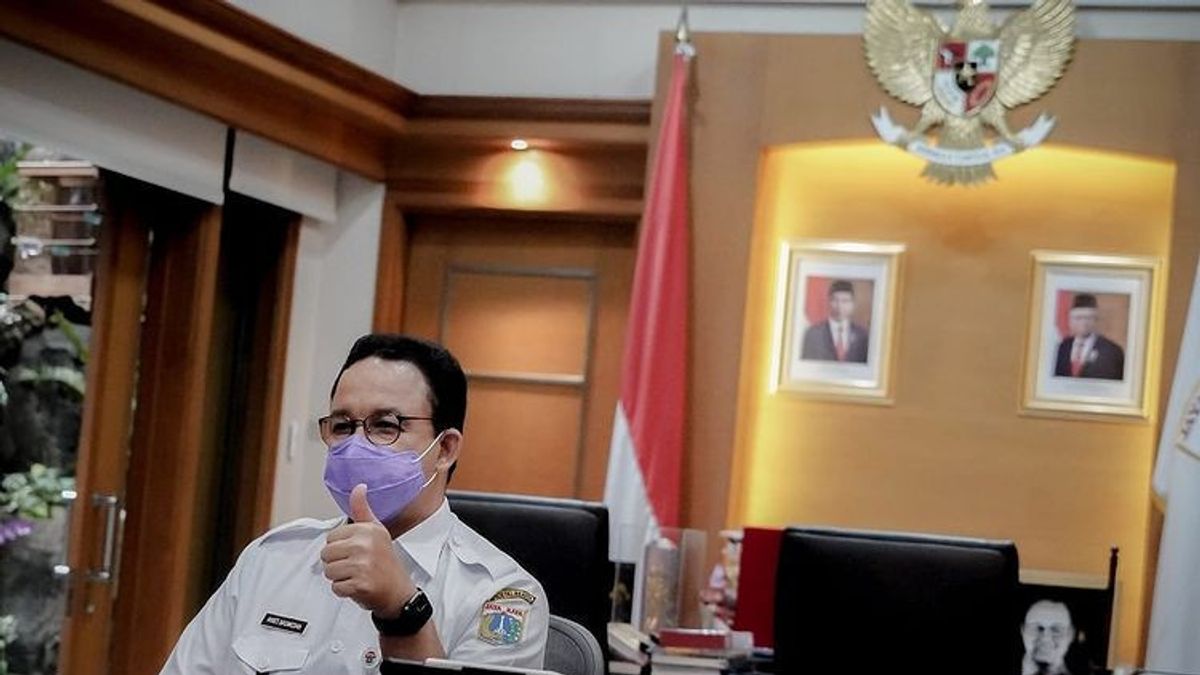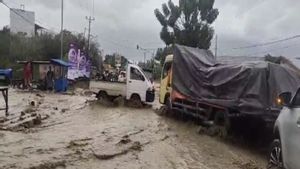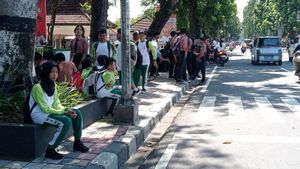JAKARTA - DKI Jakarta Governor Anies Baswedan has issued a regulation regarding vaccination as a requirement for activities in Jakarta. Residents who want to do activities outside the home must have been vaccinated at least the first dose.
The rules are applied to employees and customers of restaurants, food stalls, offices, malls, traditional markets, salons, hotels, to wedding guests.
In response to this, the Head of the Greater Jakarta Ombudsman Representative, Teguh Nugroho, said that Anies needed to pay attention to four things before implementing the rules for vaccination requirements.
First, the main principle in public service is not to ignore equality. According to him, the addition of requirements for new terms in a service must begin with the provision of these prerequisites in a transparent and accountable manner.
"Regarding the requirement for vaccination to obtain public services or gain access to public services, from the perspective of the public service law, it is clearly a discriminatory act. Only people who have been vaccinated and have received a certificate can access these public services," Teguh told reporters. , Tuesday, August 3rd.
However, this can be non-discriminatory if the DKI Provincial Government provides vaccination facilities at public service places on the spot.
"So, residents who have not received the vaccine can vaccinate there," he said.
Second, if the aim is to accelerate vaccination, what needs to be ensured is the amount of vaccine availability, vaccine distribution, and easy access for citizens to vaccinate.
"If the goal is acceleration, then the accessibility of vaccine services must be opened as close as possible to residents, both through BPJS health facilities and 24-hour clinics, which have been less than optimal," said Teguh.
Third, the DKI Provincial Government must ensure that contact tracing for COVID-19 cases has been carried out optimally first.
Because, according to Teguh's calculations, currently there are 7.6 million people who have been vaccinated with the first dose by the DKI Provincial Government. Then, only about 2 million people were vaccinated against the second dose.
"This means that there are still 10 million people who do not have immunity and are still far from herd immunity. Do not let this policy be a justification for around 7.5 million people who already have a vaccine certificate to do so, while the certificate cannot be a tracing tool and tracking suspect COVID-19," said Teguh.
Fourth, Teguh views that Anies must have a control mechanism for vaccine certificates before implementing these requirements. Because, limited supervision in the field by officers, the possibility of the emergence of fake vaccine certificates can be a problem.
DKI already has the JAKI and PeduliLindung applications to check whether a citizen has been vaccinated or not. However, Teguh said the government must prevent the system from crashing.
"Reflecting on the experience of STRP supervision, officers in the field ultimately carried out manual checks due to lack of knowledge and the unavailability of adequate equipment to read barcodes," said Teguh.
"Then, when checking manually, it is very possible for fake vaccine certificates to appear when checking," he continued.
Teguh emphasized that the vaccine certificate is not really a guarantee that the public will not be exposed to COVID-19 even though they have been injected with the COVID-19 vaccine. However, according to him, mobility restrictions remain the main thing.
The English, Chinese, Japanese, Arabic, and French versions are automatically generated by the AI. So there may still be inaccuracies in translating, please always see Indonesian as our main language. (system supported by DigitalSiber.id)













